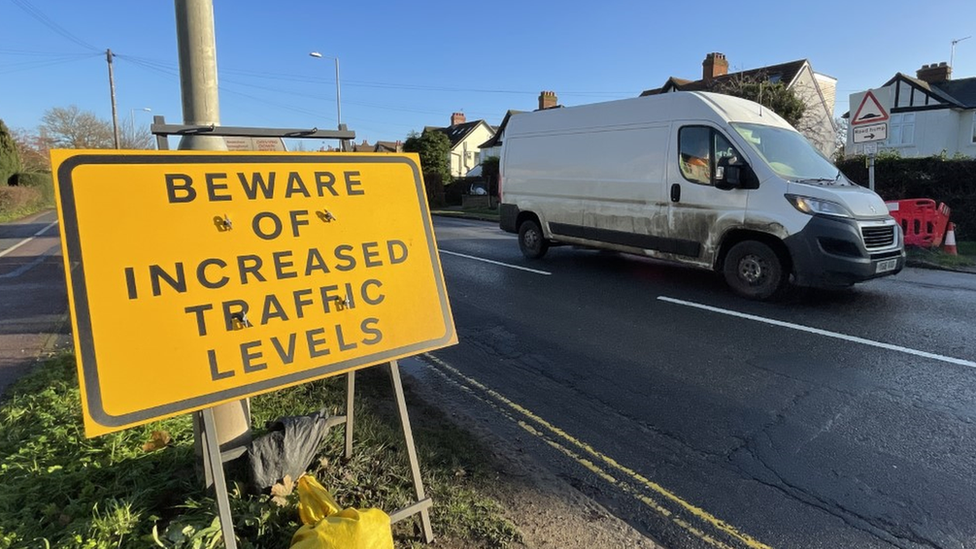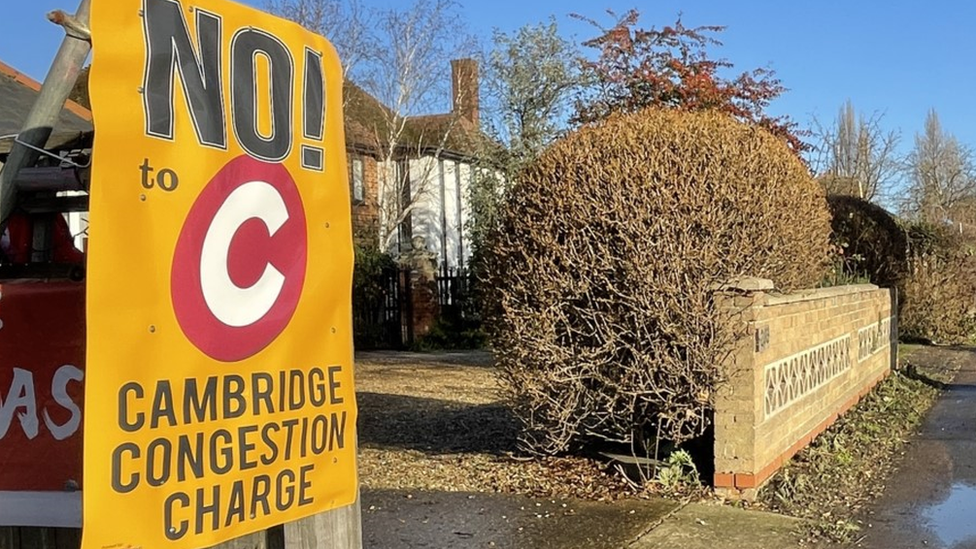Cambridge congestion charge needs re-examining, says transport minister
- Published

The plans aim to improve public transport while cutting congestion and pollution
Transport Secretary Mark Harper has supported calls for the Cambridge congestion charge plans to go "back to the drawing board".
The plan would see public transport improvements paid for by a £5 minimum daily charge for driving into or within Cambridge.
A majority of people opposed the charge after a consultation earlier this year.
A member of the Greater Cambridge Partnership (GCP) said people's views were being listened to.
The GCP- a body that includes three councils, academia and businesses - put forward the idea as part of proposals to fund and create an improved public transport network.
Mr Harper said "significant changes" like a potential charge must have "proper consultation".
However, Labour city councillor Elisa Meschini, who sits on the GCP executive board, said people's views were being considered.
Ms Meschini also called for the government to give Cambridge proper funding which would "go a long way towards resolving" some issues.
Consultation findings showed that 70% of respondents were in favour of the proposed transport network improvements, but 58% opposed the congestion charge.

Last month the executive board at the GCP agreed to move forward with the plans, but said the original scheme should be modified.
A revised detailed proposal is expected to come forward later this year.
Mr Harper said he supported calls for the GCP to go back to the "drawing board" with the plans.
He said: "I have always been very clear that significant changes to local transport policy, such as the proposed congestion charge in Cambridge, and the expansion of the ULEZ into Greater London, must be done in proper consultation with the public.
"The Lib Dems and Labour, who are pushing for these changes, must listen to local residents rather than choosing to pursue an ideological anti-car agenda."
Ms Meschini said: "People told us they want more buses and better cycle infrastructure, but we also heard the concern around the introduction of a road user charge to fund it."
She said proposals were being looked at for a scheme that "meets the aspirations of our communities while tackling the real challenges we face".
Cambridgeshire remained "severely underfunded relative to the population we serve," Ms Meschini said.
"As a result, our residents feel isolated and prevented from getting to work or school by bus services they cannot rely on.
"There is real congestion on our roads, with all its negative impacts on journeys, health and climate change," she added.
Problems with congestion would get worse as more homes and jobs are planned for the region in the coming years, she said.

Follow East of England news on Facebook, external, Instagram, external and Twitter, external. Got a story? Email eastofenglandnews@bbc.co.uk, external or WhatsApp us on 0800 169 1830
- Published26 May 2023

- Published8 June 2023
